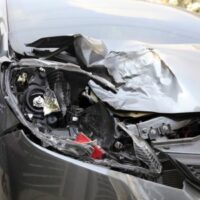Can Fault Be Determined By The Location Of Vehicle Damage?

Florida is a no-fault state for car accident claims. This means that, after a Florida car accident, a motorist should turn to their insurance company for compensation no matter who caused the crash. However, PIP coverage, also known as the no-fault insurance coverage, only covers 80% of all essential and reasonable medical expenses up to a maximum of $10,000. Fortunately, even though Florida is a no-fault state for car accident claims, motorists can sue at-fault parties in some circumstances. For example, you can step out of Florida’s no-fault system if the other driver was at fault (or partly at fault) for causing you to sustain injuries that meet the serious injury threshold as outlined under Florida Statute 627.737.
However, before you can obtain compensation from another party, you need to determine who was responsible for your accident. Fortunately, Florida’s comparative negligence law allows you to receive reimbursement from an at-fault party even if you are partially to blame for your car accident. However, if you bear some percentage of fault, your recovery of damages will be decreased.
Determining Fault After a Florida Car Accident
Car accident attorneys use a variety of methods to determine fault. Some of the steps your car accident attorney may take when investigating who caused your car accident include;
- Obtaining copies of the police and crash reports
- Visiting the car accident scene
- Hiring experts to reconstruct the accident scene
- Obtaining medical records
Can Vehicle Damage Help Determine Fault?
When an attorney inspects the damage to vehicles involved in a collision, it is possible for them to develop an account of how the accident occurred because the location and severity of damage can say a lot about how an accident occurred. However, there are straightforward cases, and then there are others that aren’t straightforward.
If, for example, both the vehicles involved in a crash have front-end damage, it may be hard to determine which car caused the head-on collision. On the other hand, if one vehicle has rear damage and the other has front damage, it can mean that the car with front damage caused the accident. However, you need to note that the rear driver is not always at fault in rear-end collisions. Sometimes, the other driver is at fault, and other times both drivers are at fault.
So, even though vehicle damage can be used to determine fault, it may be necessary to consult an accident reconstruction expert when trying to use vehicle damage to determine fault. Such an expert has the knowledge and expertise needed to determine fault using vehicle damage. An accident reconstruction expert can even re-create an accident in their effort to understand how the accident happened.
Contact Us for Legal Help
If you’ve sustained injuries in a Florida car accident due to someone else’s negligence, you need to contact a skilled Florida attorney immediately. Our West Palm Beach personal injury attorneys at The Pendas Law Firm can help determine who caused your accident. We can help you obtain compensation from an at-fault party even if you are partly to blame for your accident. Contact us today to schedule a consultation.
The Pendas Law Firm also represents clients in the Orlando, Tampa, Ocala, Bradenton, Jacksonville, Fort Myers, Fort Lauderdale, Daytona Beach, and Miami areas.






